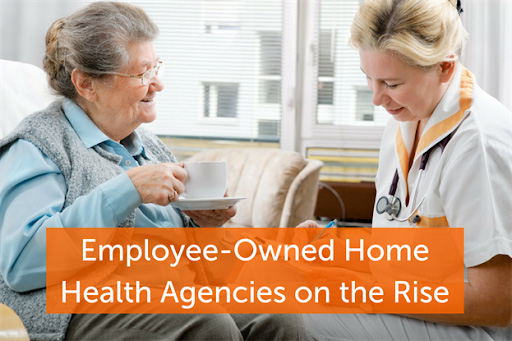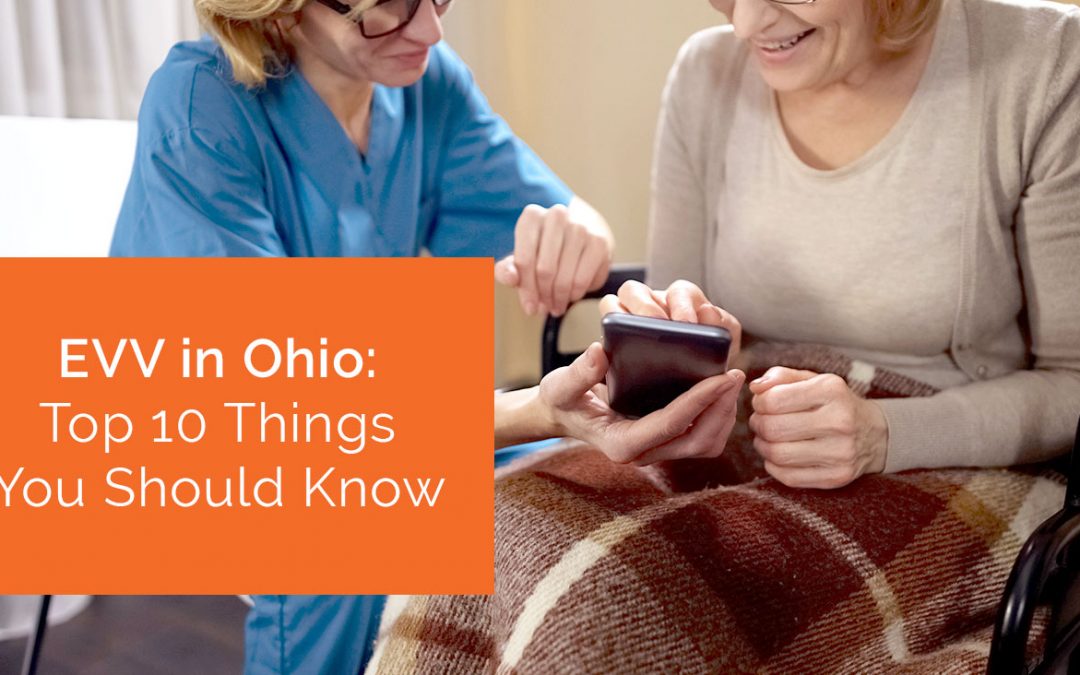In an era when the business news is full of stories of major corporations, multi-million dollar acquisitions, and mega-IPO’s, there is a growing trend in home health care that seems contrary to the world of big business. That is more and more home health agencies are moving toward a model of employee ownership. From increasing wages to improving the quality of care, there are myriad reasons that we’re seeing so many HHAs operating under the banner of “employee owned.”
What Employee Ownership Really Means
In the simplest terms, “ownership” of a business refers to the right to make decisions about how a business is run and a claim to the benefits of the business, i.e., profits. Ownership also means that you can make decisions about when, if, and how to sell the business, and have the right to the proceeds of such a sale.
In a typical, non-employee owned business, employees have a right to the income from the business in the form of their wages. Depending on their position within the company, they may also have some other rights, primarily related to how the business is run, but they do not enjoy any of the other rights of ownership. In an employee-owned business, not only do the employees have a right to the income from the business, but they are also involved in all of the other aspects of owning the business.
There are some significant benefits to employee-owned businesses. For starters, there are some financial benefits, including certain tax benefits. Employee-owned businesses also tend to perform better than other businesses, as employees have a vested interest in the success of the company. Ownership is often touted as an employee benefit, and for those who have considered entrepreneurship, sharing the burden with others can remove some of the stress that comes with being a business owner.
All of these factors can be attractive to home health agencies, but what it is it specifically that’s leading to an increase in this specific industry? As it turns out, there are several factors at play.
Why HHAs Are Moving to Employee Ownership
According to a recent survey in HomeCare Magazine, more than 50 percent of small home health agency owners want to sell their businesses within the next five years. A significant percentage of these business owners are Baby Boomers nearing retirement age, but those aren’t the only owners looking to sell. Other factors, including ever-changing regulations, diminishing reimbursements, and staffing challenges all have HHA owners looking for an exit.
The problem, though, is that many of these agency owners don’t have an exit plan in place. And, as the HomeCare research found, despite comprising 74 percent of the home health care market, small, independent agencies only account for about 16 percent of all agency sales. Investors tend to look for corporately owned agencies to back, meaning that it’s possible that many of the independent agencies coming to market in the next few years could be forced to close if buyers aren’t interested.
Which is where an employee-owned scenario comes into play. Transferring ownership of the agency to its employees is not only an effective succession plan, but it’s also one that ensures both the continued availability of home health services to clients and of jobs to the community. Many agency owners are also considering such a move to reward and take care of their loyal employees, rather than leaving them without a job should the agency be forced to close.
The Quality Factor
Despite the challenges that can come with shifting to an employee-ownership model, including structuring the business, compliance issues, administrative issues, and more, many industry experts see it as a means of actually improving both the management of the business and the quality of patient care. Giving individuals an ownership stake in anything generally has the effect of improving performance; when an employee’s compensation and the future of the company are directly tied to his or her performance, it only makes sense that they will perform to the best of their abilities. And there is evidence that employee-ownership can also increase wages and earning potential, always welcome news in an industry plagued by staffing and wage challenges.
As employee-owners, caregivers have the opportunity to have their voices heard and influence how the business is run, in every aspect from the home health software they use to the amount of training they receive. According to the Democracy at Work Institute, the number of home health companies looking to technical assistance providers for help with transitioning to an employee owned model has increased exponentially, from just 13 in 2014 to 60 in just the first half of 2017. Clearly, this is a growing trend that cannot be ignored, and could change the face of home health care agency management in the future.
To learn more about how to manage your agency in an ever-changing industry, and about tools that can help you stay ahead of the curve, click here.




